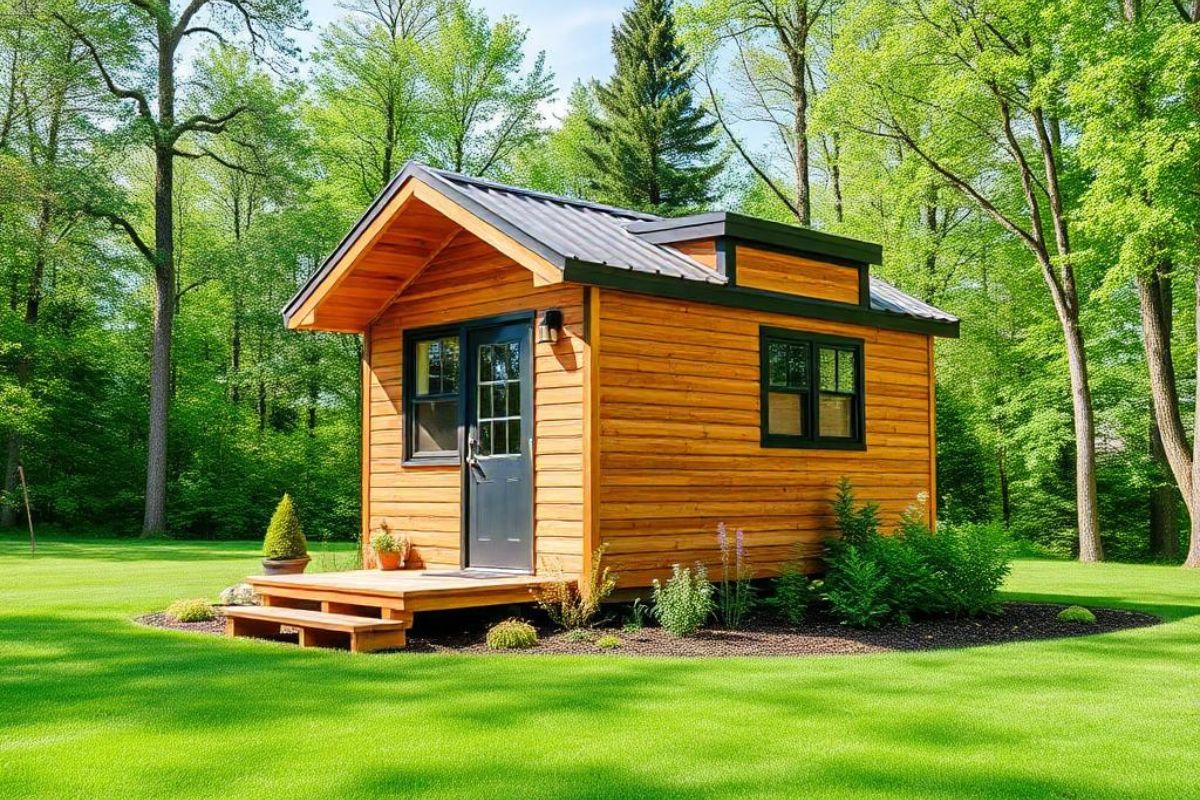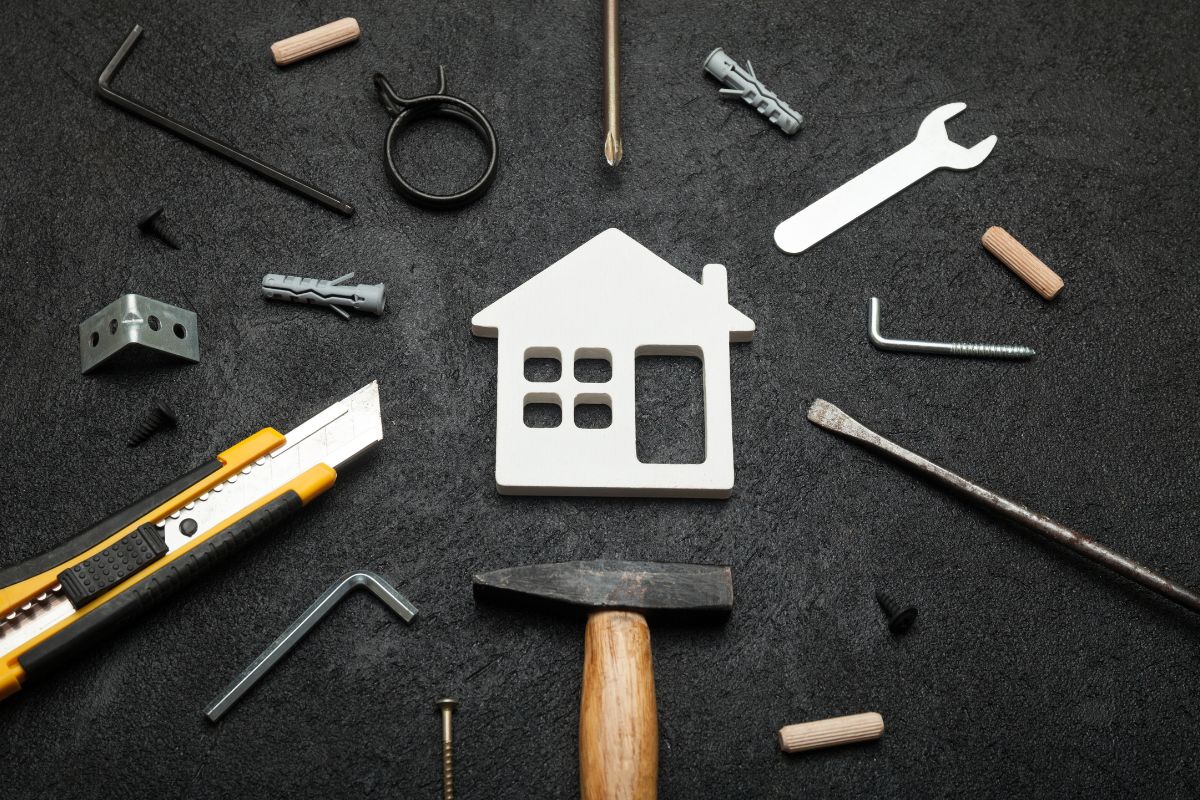Thinking about getting a tiny home? It's a great way to live simply, save some cash, and make your life more purposeful. But, getting or making one may be more complex than you first thought. There are many things to think over. You will have to make both useful choices and life changes that could greatly shape your time in your tiny home.
From making sense of the area's rules to planning where to keep your things, each step needs careful planning. If you're all set to live in a smaller space but still want it to work well and feel cozy, knowing what to expect can help you win. It can make your small living dream come true.
10 Things First-Time Buyers Should Know Before Investing in a Tiny Home
1. Understand the Zoning Laws
Thinking about buying a tiny home? It's vital you grasp the rules about local zoning and building codes first. In different towns, counties, or states the rules can wildly change. Some places set strict limits on where you can put a tiny home, especially for living in it for a long time.
You have to find out if tiny homes are seen as extra dwellings or mobile homes where you live. If it all seems like too much, signing up for online real estate classes could make these laws clearer and less scary to you. Knowing all this early on will stop you from having a headache later. That means you won't have to deal with legal troubles after you’re comfy in your home.
2. Decide on Wheels or Foundation
When you first think about having a tiny home, one of the big choices you'll face is whether to put it on wheels or a fixed base. If you like to move around and change your view, a tiny home on wheels can be great. It can easily be taken from place to place.
But be aware, you may have to follow special rules for RVs and find spots where you can stay for a long time without breaking parking laws. If you prefer a steady place to live that feels more like a regular home, a tiny house on a fixed base might be the best choice.
This choice is best if you want to stay in one place forever. But, you might have to follow stricter housing rules, called "zoning laws." Be sure to think through what you need for your lifestyle.
3. Stick to Your Budget
When you buy a tiny house, making and sticking to a budget is key. Tiny homes can be cheaper than regular ones, but if you're not mindful, the prices can stack up. Think about everything.
This includes building or buying costs, land (if needed), permits, utility connections, and moving costs for movable homes. Also, remember to budget for things inside your home, like furniture or appliances for small rooms. Being caught up in the fun of designing can throw off your budget, causing worry later on. Plan early and reserve some extra cash for any surprise costs!
4. Downsize Ahead of Time
Moving into a tiny home means changing your lifestyle, especially when considering your stuff. Start reducing the amount of stuff you own early to avoid feeling rushed. Honestly evaluate what you really need and use often because you might find there's a lot to give up.
Giving away items, selling valuable things, or passing emotional keepsakes to loved ones can help. Try keeping things that serve multiple purposes in your new home. Starting this process early gives you time to cope emotionally and practically. This will make moving easier and fun.
5. Storage is Key
Living in a tiny home has one big struggle: figuring out where to put your stuff. To deal with limited space, you need clever ideas. Furniture that has extra storage, like beds with drawers or ottomans with hiding spaces, is a great choice for your small and cozy home.

You can also make good use of wall space to keep your floor clear of anything you could trip on. Look to put up shelves, hooks, and tools for organizing on your walls. Keeping everything in its own place helps stop messiness from spreading. With smart storage tricks, your small house will stay easy to move around in and comfortable to live in.
6. Plan for Utilities
When you're planning to live in a tiny home, it's important to think about how you're going to manage your utilities, such as water, electricity, heating, cooling, and waste disposal.
These services might be different from those in a conventional home. If you'll be living in a place with existing connections, like an RV park, setting up utilities might be a breeze. However, if you're looking at living off-grid, consider options like solar panels or waste composting toilets.
Remember, it’s not just the set up costs, but also the upkeep that you need to factor into your budget. Do some research on the local rules about utilities to save yourself from any legal trouble. Planning out these things means you can have a tiny home that's sustainable all year!
7. Work With Reputable Builders
When you want to build a tiny home, finding a good builder is very important. This way, your house will be safe and made with good stuff. Try to find a builder that makes these small houses a lot. Look up what others say about the company, ask for names of people they've worked before, and see their past work to ensure they fit your vision and needs.
Keep away from builders who offer cheap rates as they might use shortcuts—this could cause repairs in the future. A reliable builder will help make your simple living dream come true.
8. Think About Resale Value
If you're thinking about getting a tiny home, keep it simple, but consider how easy it will be to sell later. A good design and layout can make your home more appealing if you choose to sell it.
Don't go too unique with your decorations - keep the colors neutral, have useful storage, and make areas that can have different uses. Use good materials and make sure the work is well done to keep the home's value. Also, follow local rules to make sure you will be able to sell your home legally. Planning these details can help keep your home a good investment for you.
9. Location is Everything
Living in a tiny home means you need to choose your location wisely. A good spot is as vital as the house. You need to think about being near important places like shops, hospitals, and jobs, regardless of if you're parking or putting a home on the ground.
Look into welcoming spots for tiny homes, as laws can be different. Having others who also live in tiny homes close by could make things more enjoyable. Other things to keep in mind include safety, what is nearby, and the view if it's important for your lifestyle. A great spot doesn't only make life easier; it also values your investment and makes everyday life a lot better.
10. Learn the Lifestyle First
Trying a tiny home before fully diving into it is smart. Small spaces need getting used to, so why not rent one for a few weeks? This lets you really see what it's like to live small. Pay mind to things like where you'll keep your stuff, your daily habits, and how to feel relaxed in less space.
Doing this helps you know if smaller living really meets your needs and what you believe. This also lets you see which layouts or design elements you might like most. Doing this before making such a big change in your life makes sure you're making a smart decision.
Use These Tips to Help You Invest in a Tiny Home
Tiny home living is amazing! It's a direct road to simpler, better-focused life decisions. Many things need thinking over before taking this big step, but planning well will make things easy and fulfilling. Now, with these handy hints, you can start making your dream come true.
Study, map out your plans, and take guidance from folks who are already tiny homeowners or experts. Your lovely tiny home—and fresh way of life—is not as far as you believe.






Share: